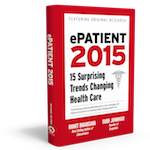Hong Kong used to be the destination favored but they have since tightened up their laws on how many can travel there to give birth. The number traveling to the US annually is around 5000 and is growing. They come here as they have money to afford it and say the facilities here in the US are better than Chinese hospitals. For Los Angeles hospitals looking to drum up a little more business I guess this would be right up there with bringing in a few more patients. 
There’s even a service that works with US families to be their hosts. The entire family can come and get a nice vacation at the same time. Birth tourism in America is legal, Professor Kevin Johnson, an expert in immigration law at the University of California, so now we have birthing tourism. There’s also a small island out in the Pacific, Saipan, a US territory as another alternative parents are choosing but services don’t compare to the US. Of course being born here also give them US citizenship and once they turn 21 they can petition the government for permanent residence status. This kind of makes one wonder how long the one child policy will remain in effect and how does China enforce it fairly?
Zhang Xuemei is just three-months pregnant but has already decided not to have her baby in her native China. Instead, the housewife and her husband, Wei Zhonghai, a wealthy mining boss, are paying tens of thousands of dollars to give birth to their third child in the United States.
Ms Zhang and Mr Wei, both 40, are just one of a growing number of anxious Chinese couples willing to spend from 100,000 to 250,000 Chinese renminbi (£10,000 to £25,000) to give birth abroad, paying 20 times more than the average cost of delivering a child at home. They have turned to a Beijing-based agency that offers services for “birth tourists” keen to travel to the US.
“We want to provide our children with more choices. If they are born in the US they will have more choices,” says Mr Wei, who lives with his family in Hebei province. “And in the hospital we will get a better service than if the baby is born in China.” The couple is currently weighing up two destinations, California and Saipan, a US island territory in the Pacific Ocean which is a cheaper option. “Los Angeles is better,” Mr Wei says. “Better shopping, right?”
It is not just about economics – it is about the environment.” He says China’s one-child policy and a superior education system in the US provide the primary motivation.
Jia Mei was co-founded by Zhou Hongxia, who gave birth to twins in California last July. Ms Zhou, a piano teacher from Guangzhou, whose husband works for Hewlett-Packard, tells The Independent she settled on the US to “provide my kids with more choices and opportunities in the future – plus, the medical standards are superior”.







